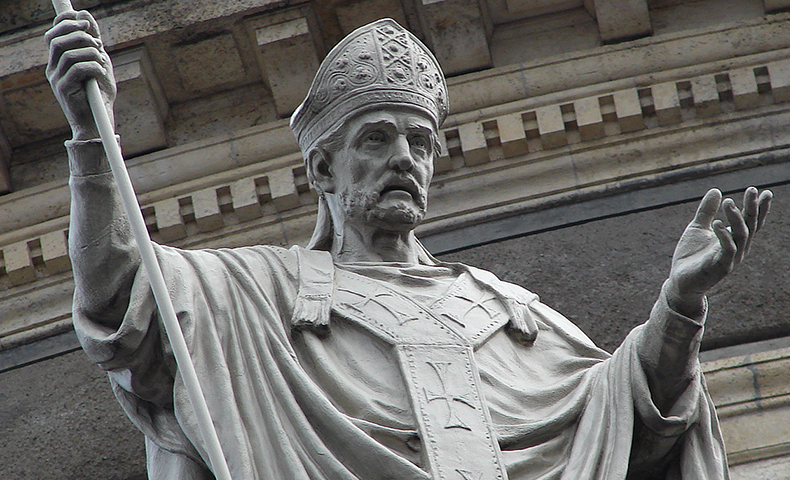St. John Chrysostom, Saint of the day for 13 September

(c. 349 - September 14, 407)
The story of St. John Chrysostom
The ambiguity and intrigue surrounding John, the great preacher (his name means "with the golden mouth") of Antioch, are characteristic of the life of every great man in a capital city. Brought to Constantinople after a dozen years of priestly service in Syria, John found himself the reluctant victim of an imperial ploy to appoint him bishop in the largest city in the empire. Ascetic, unimpressive but dignified and troubled by the stomach ailments of his days in the desert as a monk, John became a bishop under the cloud of imperial politics.
If his body was weak, his tongue was powerful. The content of his sermons, his exegesis of Scripture, were never without meaning. Sometimes the point stung the high and the mighty. Some sermons lasted up to two hours.
His lifestyle at the imperial court was not appreciated by many courtiers. He offered a modest table to episcopal flatterers around for imperial and ecclesiastical favors. John deplored the court protocol that gave him precedence before the highest state officials. He wouldn't be a man kept.
His zeal led him to decisive action. The bishops who had made their way into office have been deposed. Many of his sermons called for concrete measures to share wealth with the poor. The wealthy did not appreciate hearing from John that private property existed due to Adam's fall from grace, any more than married men loved to hear that they were tied to marital fidelity as much as their wives were. When it came to justice and charity, John didn't recognize double standards.
Detached, energetic, outspoken, especially when he got excited in the pulpit, John was a sure target for criticism and personal trouble. He was accused of secretly gorging himself on rich wines and fine foods. His fidelity as a spiritual director to the wealthy widow, Olympia, provoked much gossip in an attempt to prove him a hypocrite in matters of wealth and chastity. His actions taken against unworthy bishops in Asia Minor were seen by other clergymen as a greedy and non-canonical extension of his authority.
Theophilus, Archbishop of Alexandria, and the Empress Eudoxia were determined to discredit John. Theophilus feared the growing importance of the bishop of Constantinople and took advantage of this to accuse John of promoting heresy. Theophilus and other angry bishops were supported by Eudoxia. The empress resented his sermons which contrasted the values of the Gospel with the excesses of the life of the imperial court. Whether they liked it or not, the sermons mentioning the filthy Jezebel and the wickedness of Herodias were associated with the empress, who eventually succeeded in exiling John. He died in exile in 407.
Reflection
John Chrysostom's preaching, by word and example, exemplifies the prophet's role in comforting the afflicted and afflicting those at ease. For his honesty and courage, he paid the price of a turbulent ministry as a bishop, personal denigration and exile.